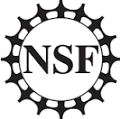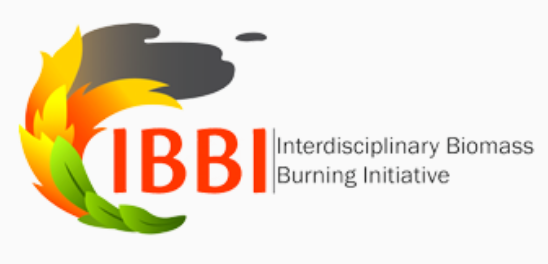2017 Conference on Fire Prediction Across Scales

The 2017 Conference on Fire Prediction Across Scales took place from the morning of October 23rd through the late afternoon of October 25th 2017 on Columbia University’s Morningside Campus.
Realistic models of fire activity and behavior are necessary for operational fire management, and to understand past and future changes in fire activity. Developing such models, however requires taking into account vegetation cover, land use practices, fire management capacity, extreme weather, and climate variability. To help foster knowledge exchange among the diverse fields of expertise involved in fire prediction, the Columbia University Initiative on Extreme Weather and Climate is hosting a 2.75-day conference, organized around the themes of “Fire Prediction” and “Fire Management and Impacts”.
_______________________________________________________________________________________________
Outcomes of the Conference
Understanding the roles of fuels, climate and people in predicting fire: taking the long view
_______________________________________________________________________________________________
Confirmed Speakers
Dominique Bachelet, Oregon State University
David Bowman, University of Tasmania
Matthew Butler, United States Forest Service
Ruth DeFries, Columbia University
Ed Delgado, Bureau of Land Management
Francesca Di Giuseppe, ECMWF
Mark Finney, United States Forest Service
Jennifer Marlon, Yale University
James Randerson, University of California Irvine
Andy Robertson, Columbia University
Maria Uriarte, Columbia University
Leroy Westerling, University of California Merced
Please view their bios here.
_______________________________________________________________________________________________
Conference Program
Please view the Fire Prediction Conference Updated Program
Please view the abstracts here.
_______________________________________________________________________________________________
Conference Themes
Fire Prediction
Synoptic scales: How well can fire occurrence in the next week be predicted? Once a fire has started, how well can its behavior be predicted over the course of hours and days? Are such predictions making use of the state of the art in fuel and terrain mapping, weather forecasting (including lightning), characterizations of human activity, and for model initialization, modern satellite-based fire detections?
Sub-seasonal and seasonal scales: Are there regions where fire potential can be reliably assessed at sub-seasonal (up to 60 days) and seasonal (more than 2 months) time-scales? What are the hard predictability limits for fire-prone tropical and extratropical regions? What are the roles of statistical and dynamical climate forecast ensembles?
Interannual, decadal and centennial time scales: What are the main interannual, decadal and centennial controls on regional fire activity, including natural vegetation changes, land use and fire management capacity, and large-scale climatic variations? How do these differ between statistical and process-based estimates? What is the potential value of including higher-resolution fire behavior models in Earth System models as both become more sophisticated?
Model benchmarking: How well do models used for projections of future fire activity perform for the observed period? What are appropriate observational benchmarks for models at different scales, including paleoclimate reconstructions, operational records from fire management agencies, and satellite estimates of active fires, burned area, land cover change, and emissions of trace gases and aerosols? What potential do modern data assimilation techniques hold for constraining estimates of fire activity and behavior?
Fire Management & Impacts
Fire management: What advances can be made in fire prescription, prevention, suppression, and mitigation using the state of the art in fire prediction, at the wildland/urban interface in particular? How does fire management policy make use of future estimates of fire activity and associated impacts? From what other sectors can we learn about how to use weather and climate predictions?
Smoke: Is there a role for advanced fire prediction in chemical weather forecasting and climate-chemistry interactions, particularly as they relate to air quality impacts and climatic effects of smoke? What is the role of assimilated trace gas and aerosol satellite retrievals for making such predictions?
Ecological and carbon cycle impacts: Do advanced fire prediction tools have a role in ecological and impacts research, particularly in the context of Earth System models used to project future states of the terrestrial carbon cycle?
Conference Goals
The goals of the conference are to synthesize cutting-edge research across the above topics and to identify areas where important advances in fire prediction at any temporal or spatial scale can be made over the next decade. The conference is intended for all in academia, government, and the private sector with an interest in latest science behind fire prediction. Through a small set of invited talks, contributed posters, and discussion sessions the conference will showcase the latest research on fire prediction and provide opportunities for networking and unstructured discussion.
_______________________________________________________________________________________________
Accommodations in NYC
We encourage you to book your accommodations ASAP.
For your convenience, we have placed hotel blocks for these dates at the following hotels:
Aloft Harlem
2296 Frederick Douglass Blvd.
New York, NY 10027
Rates: $239 per night
The Hotel Newton
2528 Broadway
New York, NY 10025
Rates: $230 for one queen bed, $250 for two queen beds
Additionally, here is a link to the Columbia hotels with preferred rates.
We also encourage you to check options on Airbnb.
Furthermore there are a few affordable options located on the Columbia Campus with information provided on their websites linked below:
Teachers College Guest Housing
International House Guest Housing
_______________________________________________________________________________________________
Organizing committee: Robert Field, Kátia Fernandes, Park Williams, Ruth DeFries, Suzana Camargo, Adam Sobel, Jaclyn Rabinowitz
_______________________________________________________________________________________________
Contact: For questions or further information, please contact Jaclyn Rabinowitz, jr3357@columbia.edu.


![]()




